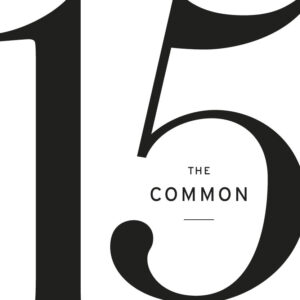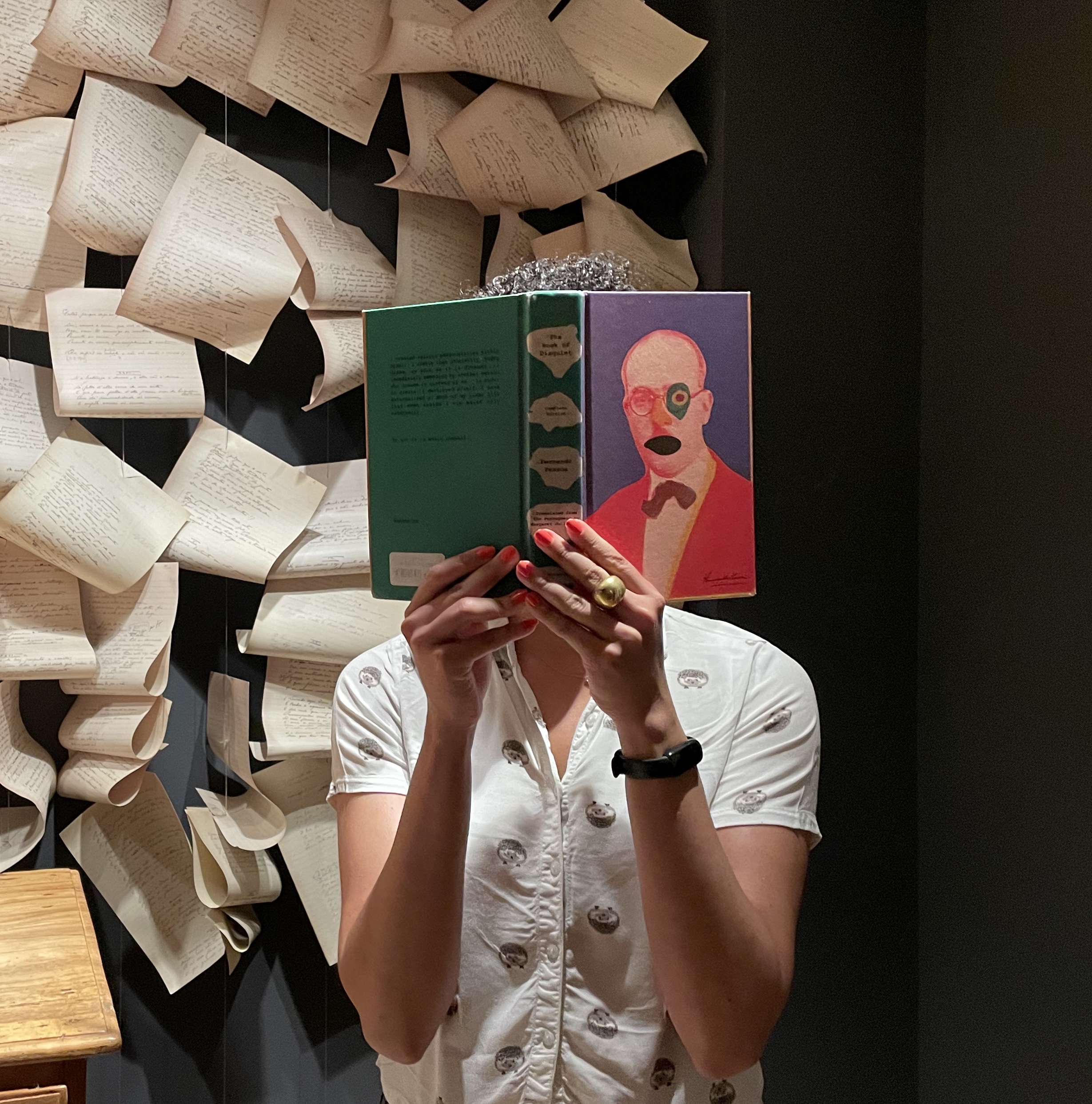
The Reading Life is a special 15th-anniversary essay series reflecting on close reading and re-reading, written by The Common’s Editorial Board.
Whenever I’ve been asked to join a book club, I’ve given a stock answer: No thanks, my life is already a book club. As an English professor who had led class discussions about books for decades, I had acquired an arrogant persona: I was someone who told other people what to read, not the other way around. Yes, I was grateful for book recommendations by certain discerning friends. But any sort of public gathering in which everyone got a democratic turn to assign the others a book, however far it ranged from one’s own interests, and then most members had to pretend to enjoy the book more than they had, was my definition of a lousy party.
The enforced solitude of Covid was finally what humbled me. With my two oldest friends, Susan of New York (whom I met at age ten) and Wendy of Montreal (whom Susan and I met at age twelve), a decision was made—which of us first suggested it?—that if we made an exclusive Zoom book club of three people who had known each other for many decades, we couldn’t possibly be assaulted by annoyingly bad books. Now, long after the pandemic’s end, I still sit at my computer in Baltimore communing with my old school friends, every six weeks or so, over a book we’ve all wanted to read or re-read. We don’t end up enjoying them as unanimously as I thought we would, but that turns out to be okay. When our tastes diverge, we may tease each other, we may even express incredulity at each other’s choices, but (like most women) we are polite. Early on, I suggested Muriel Sparks’ forgotten novel Robinson, a particular favorite, and upon reading it, my two friends concurred that it was rightly forgotten. After Susan proposed Patricia Lockwood’s memoir Priestdaddy, she declared it highly amusing, Wendy saw some merit in it, and I confessed myself uncharmed. Wendy asked us to read a much-praised Canadian family saga, Alistair MacLeod’s No Great Mischief, and Susan and I found ourselves less invested than our dual-citizen friend. But most of the time, we’ve chosen books that achieve a united ranking of very good to undeniably great, and our mutual trust means we’re not averse to doorstoppers once in a while (The Red and the Black; Arctic Dreams). We may even assign ourselves extra reading: before embarking on Percival Everett’s James, his take on Huckleberry Finn, we re-read Twain. Fiction is our go-to genre, but we’ve been known to read the occasional selection of poems, with me somewhat in the discussion lead. My friends are both art historians; although I relished reading on my own Laura Cumming’s Thunderclap, a multi-subject book with the Delft seventeenth-century painter Carel Fabritius at its center, I picked up more through Susan and Wendy.
And of course, no book club of old friends is without digressions. We bemoan the political landscape. We catch each other up on the doings of our grown children. We even do each other the touching favor of recounting affectionate stories about each other’s parents—all gone now, but unbelievably young when we first met them. Our own experiences of parenthood loom large, sometimes challenging our literary judgment. Feeling predictable, because surely thousands of readers in the past year have weighed the troubling maternal behavior of Alice Munro against their love of her work, we talked on and on about Alice Munro, then went beyond talk and re-read one of her earliest story collections, called The Beggar Maid in the U.S. and Who Do you Think You Are? in Canada. The relative merits of those titles were themselves fruit for discussion. In any case, we found Munro as great as ever, a fascinating problem.
Entirely satisfied by my Zooms with Susan and Wendy, how was it I then joined another sort of book club? When the pandemic started, my younger friend Sarah, a cheerful and brainy dynamo, proposed to a wide network of her friends across many time zones that we should all get together on Zoom at 8 p.m. (E.S.T.) once a week, and read Boccaccio’s The Decameron—aloud. This was a book club with a difference. First, Sarah actually wanted to immerse us in the fourteenth-century plague during our own plague. Second, she wasn’t asking that people discuss the reading, or at least not much. (Many of us readers had never met any of the others.) No, Sarah wanted us to read the reading. Read every paragraph aloud, in turns, about one page per person, until your turn came around again. Only an hour’s commitment at a time, which meant that The Decameron took well over a year to complete. Sarah retained many loyalists, but I dropped out early, sheepishly. Me, a literature professor, and I couldn’t commit to a classic of Western civilization? Apparently not.
I surprised myself, though, when many months later, Sarah came back with an irresistible title. How about David Copperfield? What she didn’t know was that this was my favorite novel in the world. I don’t know or care what the greatest novel might be, only that this is my favorite. But I had never read it aloud. I can still see myself at the age of sixteen, devouring it for the first time. I’m home in bed with a cold, and my parents have allowed me to spend the day in their bed, because their room has a TV. But I’m not watching TV; I’m reading the part where David, alarmed by his cagey Aunt Betsy’s prediction that Agnes is soon to be married to someone, stumbles his way into a proposal. He hardly dares to hope, but what Agnes answers is, “I have loved you my whole life!” Oh, the goosebumps that run up and down my arms as I’m reading that. And they come because I honestly didn’t intuit that Agnes would marry David. After his first wife, Dora, dies, I can’t see—I’m only sixteen—that this is a setup for the wiser David making a happier choice the second time.
There is a second time for great books too. The next time I’m thirty-one or thirty-two, and I’m teaching David Copperfield in an undergraduate seminar. I’m amazed that it was ever not-obvious to me that the eventual marriage to Agnes is coming. But what really bothers me is that nobody in the class likes the book as much as I do. They think Mr. Dick is adorable and Mr. Murdstone is evil. But the delayed gratification of David’s finding true love in Agnes is, to them, proof only that the book is too long. There is no scorn more dripping, or more unfair, than the scorn of someone who loves a great book you don’t love—or don’t love yet. I am guilty of that scorn. But I don’t want to feel superior; I really do want to share the beauty of the book with my students, by any means. Watch the movie! There’s that marvelous one by George Cukor, I say. Once you see W.C. Fields as Mr. Micawber, you’ll always see him that way—the next time you read the book.
Some of Sarah’s friends in the Zoom room had never read the book before. But I too was being taught something new every time. The rhythms of Dickens’ narration—the veering from comedy to tragedy, not only from one long passage to another but sometimes within a single sentence—are much more appreciable when read aloud. The way he tends to end chapters, with a sweep I can only call cinematic—a character looking out the window at the moon, or some other dreamy equivalent—must have almost literally floated his first readers in suspense, waiting for the next installment in the magazine serial. Although each of us Zoom readers proceeded at a reasonable pace, reading aloud is necessarily so much slower than reading in silence that all forms of suspense are given their full weight. Little David’s unfair imprisonment in his room, when read aloud, seems to last a month: will Peggotty ever be able to free him? Steerforth sends out more signals of his coming perfidy, over hundreds of pages, than we can bear: we almost want him to get on with it, although Ham must die.
I admit that when Sarah quite reasonably sped up the pace by making the Zoom readings a twice-weekly affair, I attended less often. When she announced the final reading, though, I couldn’t stay away, despite Sarah’s making an additional request: come in costume, as any character in the book. I’ve always been the one at a Halloween party who “forgot” to put together a costume, and I was a killjoy this time too. But what excellent people Sarah’s friends are! Almost all of them came dressed in something funny. Someone had considered coming as a donkey, Aunt Betsy’s nemesis, and that never materialized. But Sarah made herself into Dora’s dog, Jip. There were more Aunt Betsys than any other character, tying some sort of makeshift bonnet under the chin.
And now there will always be the alternate faces of Aunt Betsy, the faces of Sarah’s friends, when I next read David Copperfield—just as Mr. Micawber will also be W.C. Fields. Re-reading almost seems like insurance you’ll live longer. You have to keep re-reading your favorite books to see how they shape up within your current self. Which means you have to keep on having a current self, however transformed. Susan and Wendy and I remember every one of each other’s selves since late childhood, and at some point I’m going to recommend that we re-read a novel we all loved, Bleak House—which takes a long, tragedy-inflected time to arrive at its happy ending.
Mary Jo Salter is the author of nine books of poems, most recently Zoom Rooms, and is guest editor of The Best American Poetry 2024. She lives in Baltimore.



